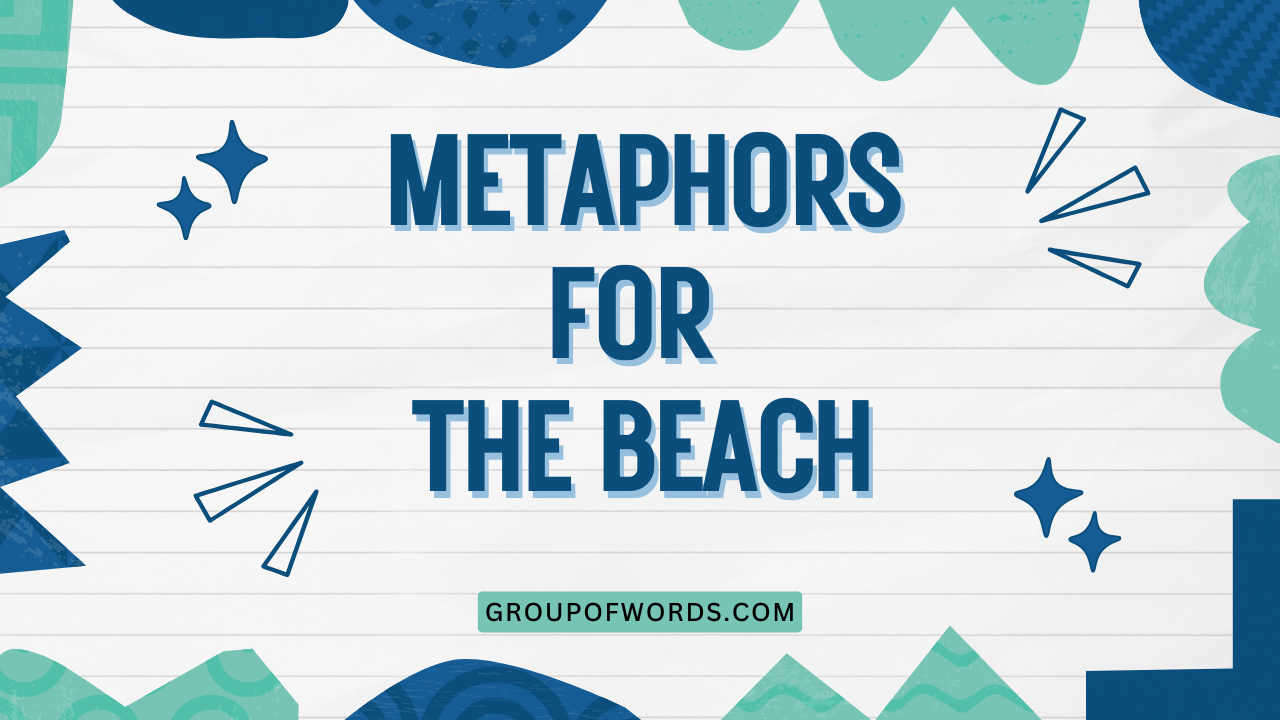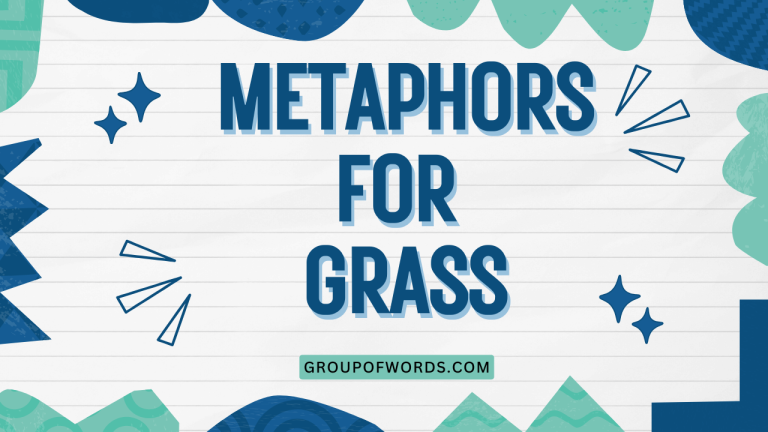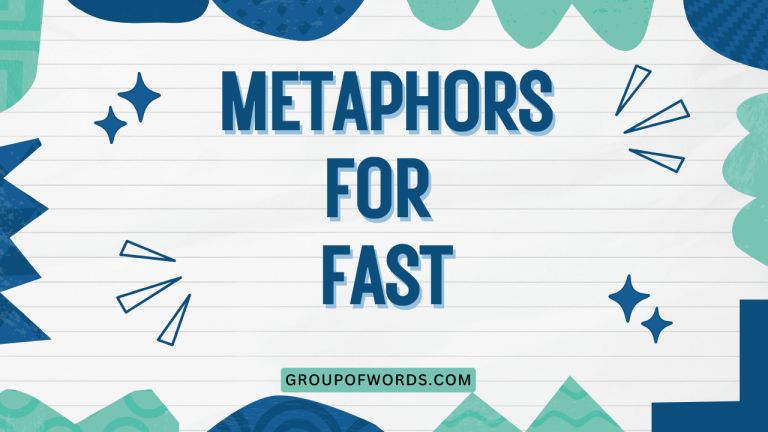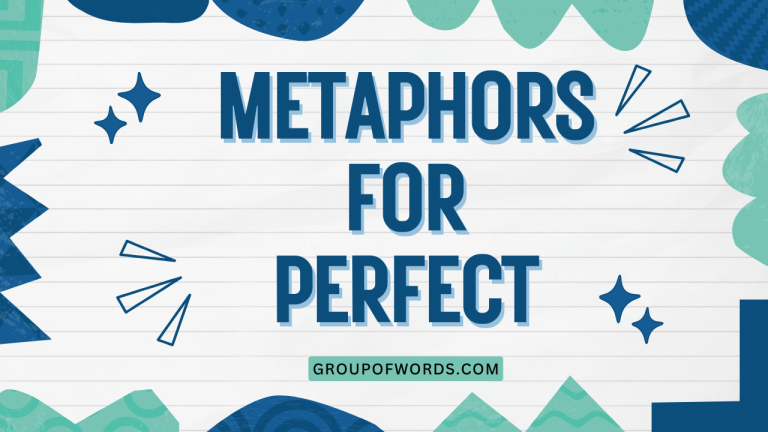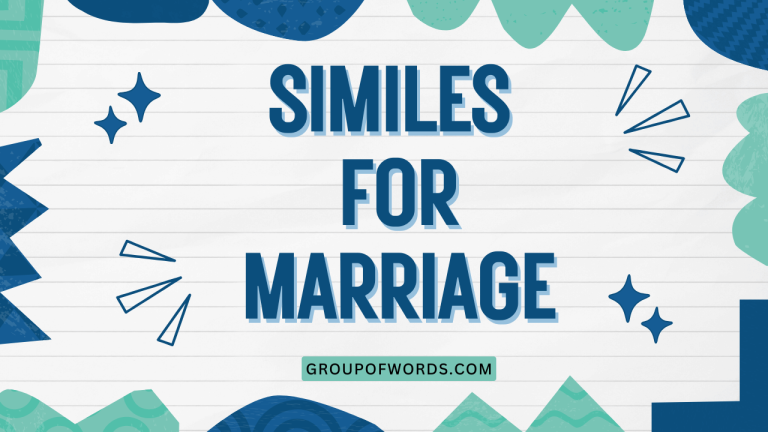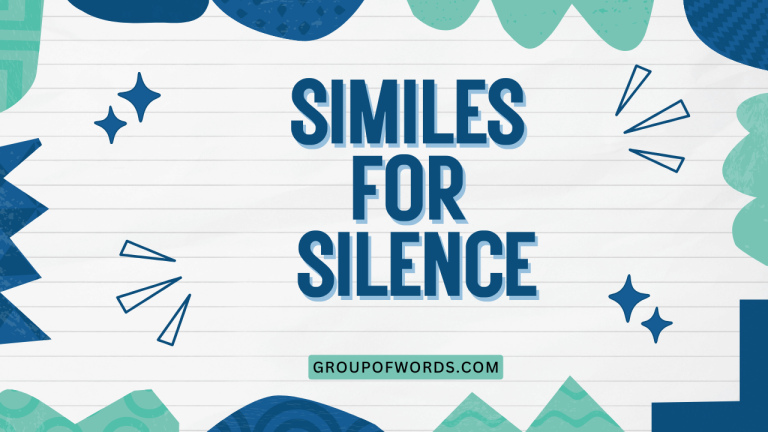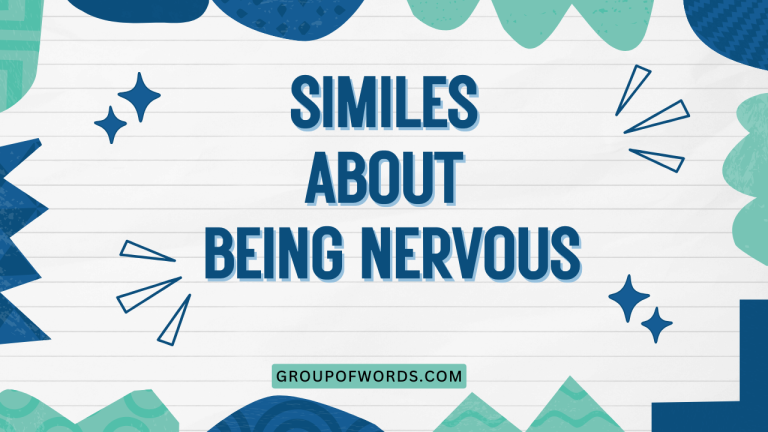Seashore Semantics: Mastering Beach Metaphors in English
The beach, with its vast expanse of sand and sea, has always been a source of inspiration and a powerful symbol in literature and everyday language. Understanding metaphors related to the beach enriches our comprehension of English and allows us to express ourselves more vividly.
This article delves into the world of beach metaphors, exploring their meanings, structures, and applications. Whether you are an English language learner, a student of literature, or simply someone who loves the beach, this guide will help you unlock the layers of meaning hidden within these evocative expressions.
This comprehensive guide is designed to equip you with the knowledge and skills to not only recognize beach metaphors but also to use them effectively in your own writing and speech. We will cover everything from basic definitions to advanced applications, ensuring that you gain a thorough understanding of this fascinating aspect of language.
Prepare to dive deep into the metaphorical ocean and discover the treasures that await!
Table of Contents
- Introduction
- Defining Beach Metaphors
- Structural Breakdown of Beach Metaphors
- Types of Beach Metaphors
- Examples of Beach Metaphors
- Usage Rules for Beach Metaphors
- Common Mistakes with Beach Metaphors
- Practice Exercises
- Advanced Topics: Extended Metaphors
- Frequently Asked Questions
- Conclusion
Defining Beach Metaphors
A metaphor is a figure of speech that directly compares two unlike things without using “like” or “as.” It asserts that one thing is another, implying a similarity between them. Beach metaphors, specifically, use elements of the beach – such as the sand, sea, waves, or shoreline – to represent abstract concepts, emotions, or experiences. These metaphors harness the universal familiarity and evocative imagery of the beach to create vivid and relatable comparisons.
The function of a beach metaphor is to enhance understanding and create a more profound connection with the audience. By drawing parallels between the beach and other aspects of life, these metaphors can make complex ideas more accessible and emotionally resonant.
They are frequently used in literature, poetry, and everyday conversation to add depth and color to language.
Beach metaphors can be classified based on the specific element of the beach they utilize. For example, some metaphors might focus on the calming nature of the ocean, while others might highlight the shifting sands as a symbol of change.
The context in which a beach metaphor is used also plays a crucial role in its interpretation. Understanding these nuances is key to mastering their effective use.
Structural Breakdown of Beach Metaphors
The structure of a beach metaphor typically involves two key elements: the tenor and the vehicle. The tenor is the subject being described, while the vehicle is the beach element used to represent it. For example, in the metaphor “Life is a beach,” ‘life’ is the tenor and ‘beach’ is the vehicle. The connection between the tenor and vehicle is the implicit similarity or shared quality that the metaphor highlights.
Effective beach metaphors often rely on vivid imagery and sensory details to create a strong impact. Describing the specific qualities of the beach element – such as the crashing waves, the warm sand, or the endless horizon – can enhance the metaphor’s power and resonance.
The structure might also involve a comparison of actions or processes, such as comparing the ebb and flow of the tide to the ups and downs of life.
Understanding the underlying structure of metaphors allows for more effective creation and interpretation. By identifying the tenor, vehicle, and the implied connection, one can fully grasp the intended meaning and appreciate the artistry of the metaphor.
This analytical approach also aids in avoiding unintended meanings or misinterpretations.
Types of Beach Metaphors
Beach metaphors can be categorized based on the specific concepts they represent. Here are some common categories:
Metaphors for Life’s Journey
These metaphors often use the vastness of the ocean or the length of the shoreline to represent the journey of life, with its challenges, opportunities, and ever-changing landscape. They may also focus on the individual’s experience navigating this journey.
Metaphors for Emotions
Emotions can be volatile and overwhelming, much like the sea. Beach metaphors capture this intensity, using elements like waves, tides, and storms to represent feelings of joy, sorrow, anger, or peace.
Metaphors for the Passage of Time
The constant movement of the tides and the gradual erosion of the shoreline serve as powerful metaphors for the passage of time. These metaphors often emphasize the cyclical nature of time and its relentless progression.
Metaphors for Challenges and Obstacles
The rough waves, hidden rocks, and unpredictable currents of the ocean can symbolize the challenges and obstacles we face in life. These metaphors often highlight the need for resilience, perseverance, and careful navigation.
Metaphors for Opportunities and Possibilities
The vastness of the ocean and the undiscovered treasures it holds can represent the endless possibilities that life offers. These metaphors often inspire a sense of hope, adventure, and the potential for growth.
Examples of Beach Metaphors
Here are some examples of beach metaphors, organized by category:
Life Examples
These metaphors use the beach to represent different aspects of life’s journey and experiences.
The following table provides a comprehensive list of metaphors about life, using the beach as a comparison.
| Metaphor | Explanation |
|---|---|
| Life is a beach. | Life can be relaxing and enjoyable, but also challenging. |
| The beach of life stretches endlessly before us. | Life is full of possibilities and experiences yet to come. |
| We are all just grains of sand on the beach of time. | Humans are small and insignificant compared to the vastness of time. |
| Navigating life is like sailing on a turbulent sea. | Life can be challenging and unpredictable, requiring careful navigation. |
| Some people build sandcastles on the beach, only to see them washed away. | Some endeavors are temporary and ultimately futile. |
| The tides of life bring both joy and sorrow. | Life experiences are cyclical, with ups and downs. |
| She found her peace on the shores of self-discovery. | She found inner peace through introspection and understanding. |
| He was adrift in the sea of uncertainty. | He felt lost and unsure about his future. |
| Her dreams were like seashells scattered along the beach, waiting to be collected. | Her dreams were plentiful and within reach, needing only effort to achieve. |
| His life was a shipwreck, washed ashore on the sands of despair. | His life had been ruined, leaving him feeling hopeless. |
| The journey of life is like a walk on the beach, sometimes smooth, sometimes rocky. | Life’s path can be easy or difficult, depending on circumstances. |
| She was searching for pearls of wisdom in the ocean of knowledge. | She was seeking profound insights through learning and experience. |
| He built his success on the solid foundation of the sandy shore. | His success was built on a firm and reliable base. |
| Life’s challenges are like crashing waves, testing our strength. | Difficulties in life can be overwhelming and require resilience. |
| The beach represents a new beginning, a fresh start. | The beach symbolizes opportunities for change and growth. |
| She felt grounded, like a sturdy lighthouse guiding ships to shore. | She felt stable and reliable, providing guidance to others. |
| His hopes were as boundless as the horizon over the ocean. | His aspirations were limitless and full of potential. |
| They were islands of solitude in the vast archipelago of humanity. | They felt isolated and alone amidst a large population. |
| The beach of life is full of hidden treasures waiting to be discovered. | Life holds many opportunities and rewards for those who seek them. |
| He was a lone seagull soaring above the sea of conformity. | He was independent and resisted societal pressures. |
| Her resilience was like a sturdy seawall, protecting her from the storms of life. | She was strong and able to withstand life’s challenges. |
| The beach is a canvas where the tides paint a new masterpiece every day. | Life is constantly changing, bringing new experiences and perspectives. |
| He felt like a castaway, stranded on the island of his own making. | He felt isolated and responsible for his own predicament. |
| The waves of change are constantly reshaping the coastline of our lives. | Life is full of transitions that alter our circumstances and perspectives. |
Emotion Examples
These metaphors use beach elements to describe various emotions and feelings.
This table shows metaphors for emotions, using different aspects of the beach to illustrate those feelings.
| Metaphor | Explanation |
|---|---|
| Her anger was a tsunami, overwhelming everything in its path. | Her anger was intense and destructive. |
| His sadness was a deep, dark sea. | His sadness was profound and consuming. |
| Her joy was like sunshine on the water, sparkling and bright. | Her joy was radiant and infectious. |
| He felt like a ship lost at sea, tossed about by his emotions. | He felt overwhelmed and controlled by his emotions. |
| The peace of the beach washed over her, calming her troubled mind. | The tranquility of the beach brought her inner peace. |
| His fear was a cold, creeping tide, slowly engulfing him. | His fear was gradual and insidious, taking over his senses. |
| Her love was as vast as the ocean, endless and deep. | Her love was limitless and profound. |
| He was drowning in a sea of despair. | He was overwhelmed by hopelessness. |
| Her hope was a lighthouse in the storm, guiding her through the darkness. | Her hope provided direction and reassurance during difficult times. |
| His anxiety was a restless tide, never ceasing its ebb and flow. | His anxiety was constant and unrelenting. |
| She felt like a seashell, empty and hollow after the storm of emotions. | She felt emotionally drained and vulnerable. |
| His guilt was a heavy anchor, dragging him down into the depths. | His guilt was a burden weighing him down. |
| Her excitement was like a kite soaring high above the beach, light and free. | Her excitement was exhilarating and unburdened. |
| He was caught in the undertow of his regrets. | He was trapped by his past mistakes. |
| Her confidence was as solid as the cliffs overlooking the sea. | Her confidence was unwavering and strong. |
| He felt like driftwood, tossed about by the waves of his feelings. | He felt helpless and controlled by his emotions. |
| Her serenity was a calm bay, sheltered from the storms. | Her peace was protected and undisturbed. |
| His loneliness was an empty beach at night, silent and desolate. | His loneliness was profound and isolating. |
| Her forgiveness was like the tide washing away the footprints in the sand. | Her forgiveness erased past hurts and resentments. |
| He was lost in a fog of confusion, unable to see the shore. | He was disoriented and uncertain. |
| Her passion was like a bonfire on the beach, burning bright and warm. | Her passion was intense and invigorating. |
| He felt like a grain of sand, insignificant in the face of the ocean’s power. | He felt small and powerless. |
| Her empathy was like a gentle sea breeze, soothing the pain of others. | Her empathy provided comfort and relief. |
| He was shipwrecked on the island of his own despair. | He was trapped in his own hopelessness. |
| Her strength was the lighthouse, standing firm against the crashing waves. | Her strength was her ability to withstand any challenge. |
Time Examples
These metaphors use the beach to symbolize the passage of time and its effects.
The subsequent table provides examples of metaphors related to time, using the beach as a point of reference.
| Metaphor | Explanation |
|---|---|
| Time is like the tide, constantly ebbing and flowing. | Time is cyclical and never stops moving. |
| The sands of time slip through our fingers. | Time passes quickly and is easily lost. |
| The beach remembers the footsteps of generations past. | The beach holds traces of history and memories. |
| The waves of time erode even the strongest cliffs. | Time gradually wears away everything, even the most resilient things. |
| Each grain of sand represents a moment in time. | Every small moment contributes to the larger passage of time. |
| The shoreline of the past stretches behind us, receding into the distance. | The past becomes more distant as time goes on. |
| The future is an uncharted ocean, full of possibilities. | The future is unknown and full of potential. |
| Time washes away our worries like the tide cleanses the shore. | Time can heal and alleviate concerns. |
| The beach is an ancient clock, marked by the rhythm of the tides. | The beach provides a natural measure of time. |
| We are all just seashells, tossed about by the currents of time. | We are subject to the forces of time and change. |
| The sun sets like a final wave crashing on the shore, marking the end of the day. | The sunset symbolizes the conclusion of the day. |
| The years are like grains of sand, accumulating to form the beach of our lives. | Life is built up from individual moments and experiences. |
| Time leaves its mark on the beach, shaping the landscape with each tide. | Time alters and transforms the world around us. |
| We search for timeless moments, like finding a perfect seashell on the beach. | We seek moments that are memorable and lasting. |
| The past is like a sunken ship, lying beneath the surface of the present. | The past is hidden but still influences the present. |
| The future is like a distant shore, beckoning us forward. | The future invites us to move towards it. |
| Time is a relentless sculptor, carving away at the cliffs of our memories. | Time gradually alters and fades our memories. |
| The beach holds the echoes of laughter from summers long past. | The beach evokes memories of past experiences. |
| We are all travelers on the beach of time, leaving our footprints in the sand. | We all pass through time and leave our mark on the world. |
| The tide of time brings change, sometimes gently, sometimes with force. | Time brings both gradual and sudden transformations. |
| The beach whispers stories of ancient shores and forgotten civilizations. | The beach holds historical significance and tales of the past. |
| Each sunrise is a new wave of time crashing on the beach of our lives. | Each day brings new opportunities and experiences. |
| The rhythm of the waves is the heartbeat of time, constant and unwavering. | The waves provide a steady measure of time’s passage. |
| The sea is a mirror reflecting the passage of time, showing us our own mortality. | The sea reminds us of our limited time on earth. |
| We build sandcastles of dreams, knowing they will eventually be washed away by time. | We create aspirations that are temporary and subject to change. |
Challenge Examples
These metaphors use the beach to represent challenges, obstacles, and difficulties.
The following table lists metaphors that depict challenges, using beach imagery.
| Metaphor | Explanation |
|---|---|
| Life’s challenges are like navigating a stormy sea. | Life can be difficult and unpredictable, requiring skill and resilience. |
| She faced her problems like a lighthouse standing firm against the crashing waves. | She confronted her difficulties with strength and determination. |
| He was caught in the undertow of his mistakes. | He was trapped by the consequences of his past actions. |
| Her path was strewn with seashells, each one a painful memory. | Her journey was filled with reminders of past hurts. |
| He felt shipwrecked, washed ashore by the storms of life. | He felt defeated and overwhelmed by life’s challenges. |
| The obstacles in her way were like jagged rocks hidden beneath the surface. | The difficulties she faced were unexpected and dangerous. |
| He was lost in the fog of uncertainty, unable to see the shore. | He was confused and unsure about how to proceed. |
| Her fears were like sea monsters lurking in the depths of her mind. | Her anxieties were powerful and threatening. |
| He struggled against the currents of adversity. | He fought against difficult circumstances. |
| Her doubts were like barnacles clinging to her confidence, weighing her down. | Her doubts hindered her progress and self-belief. |
| He was stranded on an island of isolation, far from help. | He felt alone and without support. |
| Her failures were like sandcastles washed away by the tide, leaving no trace. | Her failures seemed insignificant and easily forgotten. |
| He battled the waves of despair, struggling to stay afloat. | He fought against hopelessness and depression. |
| Her path was blocked by a seawall of prejudice. | She faced discrimination and bias. |
| He was caught in a riptide of bad decisions. | He was swept away by the consequences of his poor choices. |
| Her challenges were as vast as the ocean, seemingly insurmountable. | The difficulties she faced appeared overwhelming. |
| He felt like a small boat in a hurricane, tossed about by forces beyond his control. | He felt helpless and vulnerable in the face of overwhelming challenges. |
| Her struggles were like walking barefoot on a beach of broken glass. | Her experiences were painful and difficult to endure. |
| He was lost in the labyrinth of his own making, unable to find his way back to shore. | He was trapped by his own mistakes and decisions. |
| Her problems were like seaweed, tangling her feet and holding her back. | Her difficulties were hindering her progress and freedom. |
| He was weighed down by the anchor of his past, unable to move forward. | He was held back by his past experiences and regrets. |
| Her journey was like sailing through a minefield of potential disasters. | Her path was fraught with danger and risk. |
| He was swept away by the tidal wave of public opinion. | He was overwhelmed by the force of popular sentiment. |
| Her challenges were like climbing a sand dune, taking two steps forward and one step back. | Her progress was slow and difficult, with setbacks and obstacles. |
| He was drowning in a sea of debt. | He was overwhelmed by financial obligations. |
Opportunity Examples
These metaphors use the beach to represent opportunities, possibilities, and potential.
The table below contains metaphors illustrating opportunities, using elements of the beach as symbols.
| Metaphor | Explanation |
|---|---|
| The future is an open sea, full of undiscovered islands. | The future holds endless possibilities and opportunities. |
| Life is a beachcombing expedition, full of hidden treasures waiting to be found. | Life offers many rewards for those who seek them out. |
| Each sunrise is a new wave of opportunity crashing on the shore. | Every day brings fresh chances and possibilities. |
| The beach is a blank canvas, waiting for us to create our own masterpiece. | We have the freedom to shape our lives and pursue our dreams. |
| The ocean of possibilities stretches endlessly before us. | There are no limits to what we can achieve. |
| Her potential was as vast as the horizon over the sea. | She had unlimited capabilities and potential. |
| He set sail on a voyage of discovery, seeking new horizons. | He embarked on a journey to explore new opportunities. |
| Her dreams were like seashells scattered along the shore, waiting to be collected. | Her aspirations were plentiful and within reach. |
| He found a pearl of wisdom in the depths of his experiences. | He gained valuable insights from his life lessons. |
| Her talents were like hidden gems, waiting to be unearthed. | She possessed untapped abilities that could be developed. |
| He cast his net wide, hoping to catch a big opportunity. | He pursued a variety of possibilities in the hope of success. |
| Her future was as bright as the sun shining on the water. | She had a promising and optimistic outlook. |
| He sailed into uncharted waters, eager to explore new territories. | He ventured into unfamiliar areas, seeking new adventures. |
| Her opportunities were like waves, constantly rolling in and out. | She had a continuous stream of chances and possibilities. |
| He found a lifeline in the sea of despair, a chance to start over. | He discovered a way to escape his difficult circumstances. |
| Her path was illuminated by the lighthouse of hope. | She was guided by optimism and positive expectations. |
| He discovered a treasure trove of opportunities on the shores of innovation. | He found abundant possibilities through creativity and new ideas. |
| Her potential was like a dormant volcano, waiting to erupt with creativity. | She had untapped creative energy that was ready to be unleashed. |
| He rode the wave of success to new heights. | He capitalized on a favorable opportunity to achieve great things. |
| Her chances were as plentiful as the grains of sand on the beach. | She had an abundance of opportunities available to her. |
| He found a second wind, like reaching the shore after a long swim. | He regained strength and energy after a period of exhaustion. |
| Her journey was like sailing with the wind at her back, propelled by good fortune. | She was fortunate and had favorable conditions for success. |
| He found a hidden cove of opportunity, sheltered from the storms of competition. | He discovered a unique and advantageous situation. |
| Her chances were like stars twinkling over the ocean, countless and inspiring. | She had numerous and encouraging possibilities. |
| He navigated the sea of challenges to reach the shores of success. | He overcame difficulties to achieve his goals. |
Usage Rules for Beach Metaphors
Using beach metaphors effectively requires careful consideration of several factors:
Clarity and Relevance
The metaphor should be clear and easy to understand. The connection between the beach element and the concept it represents should be readily apparent.
Avoid metaphors that are too obscure or require extensive explanation.
Contextual Appropriateness
The metaphor should be appropriate for the context in which it is used. Consider the audience, the tone of the writing, and the overall message you are trying to convey.
A metaphor that works well in a poem might not be suitable for a business presentation.
Avoiding Clichés
Be mindful of overused metaphors. While familiar metaphors can be effective, they can also feel tired and unoriginal.
Strive to create fresh and imaginative comparisons that will capture the reader’s attention.
Consistency
Maintain consistency in your use of metaphors. Avoid mixing metaphors that create conflicting or confusing images.
If you start with a beach metaphor, stick with it throughout the passage.
Common Mistakes with Beach Metaphors
Here are some common mistakes to avoid when using beach metaphors:
- Mixing metaphors: Combining incompatible images.
- Incorrect: “He sailed through the sea of life, but hit a brick wall.”
- Correct: “He sailed through the sea of life, encountering many storms.”
- Using clichés: Relying on overused and unoriginal metaphors.
- Incorrect: “Life is a beach.”
- Correct: “Life is like beachcombing: you never know what treasures you’ll find.”
- Being too obscure: Creating metaphors that are difficult to understand.
- Incorrect: “Her soul was a barnacle on the hull of existence.”
- Correct: “Her soul clung tightly to her beliefs, resisting the currents of change.”
Practice Exercises
Test your understanding of beach metaphors with these exercises:
Exercise 1: Identifying Beach Metaphors
Identify the beach metaphor in each sentence and explain its meaning.
| Question | Answer |
|---|---|
| 1. His anger was a tsunami, destroying everything in its path. | Metaphor: “tsunami”; Meaning: His anger was overwhelming and destructive. |
| 2. She found peace on the shores of self-discovery. | Metaphor: “shores of self-discovery”; Meaning: She found inner peace through understanding herself. |
| 3. The sands of time slip through our fingers. | Metaphor: “sands of time”; Meaning: Time passes quickly and is easily lost. |
| 4. Life’s challenges are like navigating a stormy sea. | Metaphor: “stormy sea”; Meaning: Life can be difficult and unpredictable. |
| 5. The future is an open sea, full of undiscovered islands. | Metaphor: “open sea, undiscovered islands”; Meaning: The future holds endless possibilities. |
| 6. He was drowning in a sea of debt. | Metaphor: “sea of debt”; Meaning: He was overwhelmed by financial obligations. |
| 7. Her potential was as vast as the horizon over the sea. | Metaphor: “horizon over the sea”; Meaning: She had unlimited capabilities and potential. |
| 8. He set sail on a voyage of discovery, seeking new horizons. | Metaphor: “voyage of discovery, new horizons”; Meaning: He embarked on a journey to explore new opportunities. |
| 9. Her dreams were like seashells scattered along the shore, waiting to be collected. | Metaphor: “seashells scattered along the shore”; Meaning: Her aspirations were plentiful and within reach. |
| 10. He found a pearl of wisdom in the depths of his experiences. | Metaphor: “pearl of wisdom in the depths”; Meaning: He gained valuable insights from his life lessons. |
Exercise 2: Using Beach Metaphors in Sentences
Complete each sentence with an appropriate beach metaphor.
| Question | Answer |
|---|---|
| 1. After the difficult exam, she felt like __________. | …a calm sea after a storm. |
| 2. His determination was as strong as __________. | …a lighthouse standing against the waves. |
| 3. The possibilities ahead seemed as endless as __________. | …the ocean stretching to the horizon. |
| 4. He was lost in __________ of his own making. | …the labyrinth of his own making. |
| 5. The memories of that summer were like __________ she cherished. | …rare seashells she cherished. |
| 6. The challenges she faced were like __________, testing her resilience. | …crashing waves testing her resilience. |
| 7. Time seemed to __________ as they relaxed on the beach. | …slow to a gentle tide. |
| 8. He felt like __________ after working tirelessly for days. | …a castaway on a deserted island. |
| 9. The weight of his responsibilities was like __________. | …a heavy anchor dragging him down. |
| 10. She was searching for __________ in the vast library. | …pearls of wisdom. |
Exercise 3: Creating Original Beach Metaphors
<
p>Create your own beach metaphors to describe the following concepts:
- Love
- Fear
- Hope
- Success
- Failure
Example:
- Concept: Love
- Metaphor: Love is like a gentle sea breeze, soothing and refreshing.
Advanced Topics: Extended Metaphors
An extended metaphor is a metaphor that is developed over several lines or even throughout an entire work. It allows for a more complex and nuanced comparison, creating a richer and more engaging reading experience.
When using extended beach metaphors, consider how different elements of the beach can be interwoven to create a cohesive and meaningful representation of the subject.
For instance, you could compare a long-term relationship to a voyage across the ocean, with the initial excitement of setting sail, the challenges of navigating storms, and the eventual arrival at a tranquil harbor. Each element of the journey can be explored in detail, adding layers of meaning to the metaphor.
The key to a successful extended metaphor is consistency and coherence. Ensure that the different elements of the metaphor work together to create a unified and compelling image.
Avoid introducing conflicting or contradictory imagery that could confuse the reader.
Frequently Asked Questions
What is the difference between a metaphor and a simile?
A metaphor directly equates two unlike things, while a simile uses “like” or “as” to make a comparison. For example, “Life is a beach” is a metaphor, while “Life is like a beach” is a simile.
How can I avoid using clichés in my beach metaphors?
Try to focus on specific and unique aspects of the beach. Instead of saying “Life is a beach,” consider more original comparisons, such as “Life is like beachcombing: you never know what treasures you’ll find,” or “Life is like the tide, constantly changing and reshaping the shore.”
Can beach metaphors be used in formal writing?
Yes, but use them judiciously. Ensure that the metaphor is appropriate for the audience and the tone of the writing.
In formal contexts, it’s often best to use more subtle and understated metaphors.
How do I choose the right beach element for my metaphor?
Consider the specific qualities of the beach element and how they relate to the concept you are trying to describe. For example, if you want to convey a sense of peace and tranquility, you might use the image of a calm sea.
If you want to convey a sense of challenge, you might use the image of a stormy ocean.
Are beach metaphors culturally universal?
While the beach is a familiar image to many people, cultural differences can influence the interpretation of beach metaphors. Be mindful of your audience and consider whether the metaphor will resonate with them.
Conclusion
Beach metaphors offer a rich and evocative way to express complex ideas and emotions. By understanding their structure, types, and usage rules, you can effectively incorporate them into your writing and speech.
Whether you are describing the journey of life, the intensity of emotions, or the passage of time, beach metaphors can add depth, color, and resonance to your language. So, dive into the metaphorical ocean and explore the endless possibilities that await!
